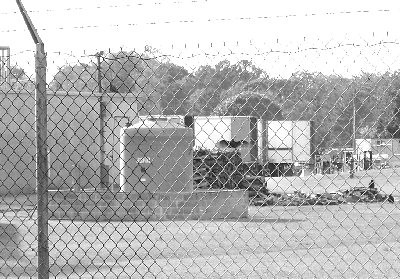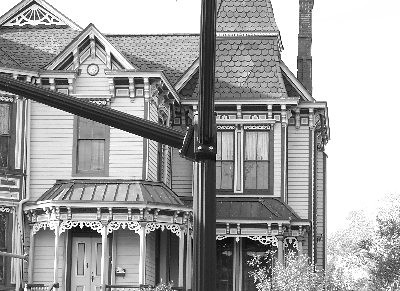












 Here are some links about it, written by people more diligent than I apparently am, who have perhaps had more recent sleep or fewer recent toddlers:
Here are some links about it, written by people more diligent than I apparently am, who have perhaps had more recent sleep or fewer recent toddlers: When I was gathering my big stack of contemporary fiction titles to read this summer, this was one of the ones I held up to my husband and said, "Oh, for heaven's sake, get a load of this." I thought it was one of those books, that makes you work so hard to "get it", and gives you half a sneer in return, and I won't put a finger on what I'm talking about or give an example, but you KNOW you have read them, I think I've even written some short stories like this, and so I know what I'm rolling my eyes about.
When I was gathering my big stack of contemporary fiction titles to read this summer, this was one of the ones I held up to my husband and said, "Oh, for heaven's sake, get a load of this." I thought it was one of those books, that makes you work so hard to "get it", and gives you half a sneer in return, and I won't put a finger on what I'm talking about or give an example, but you KNOW you have read them, I think I've even written some short stories like this, and so I know what I'm rolling my eyes about.The first part of Forgetfulness is a fictional monograph on the life of the Austrian modernist composer Anton von Webern (1883-1945).The collage-work monograph unfolds in a Webernian sequence of events and silences combining quotes from Webern, his friends and associates, and various historical and literary figures with short scenes, monologues, dialogues, newspaper articles, and theater and film scripts. The result is a lyrical panorama of early twentieth century Vienna.There was more. Also, flipping through it, I saw that part of it was divided into three sections on the page, between "Soloist" and "Composer" and "Archivist" and I anticipated a fractured narrative, with time jumping around, and thought it would be a pain in my ass. I MUST BE GETTING OLD. I ADMIT. I WAS CRABBY ABOUT IT! I wasn't really jumping up and down, anxious to crack into it.
The second part of the book takes place in Vienna on May 1st, 1986, shortly before the election of Kurt Waldheim as President of the Austrian Republic and shortly after the Chernobyl disaster. The three simultaneous, intertwining monologues of an archivist, a retired opera singer, and the author of the monograph, revisit the themes and events of the first part, commenting on postwar conceptions, analyses, and revisions of the period during which Webern lived, while continuously haunted by the specters of Waldheim and Chernobyl, the persistence of crimes that are immanent, unpaid for, or only dimly, disingenuously recalled.
 I read this book while I was coming down with the flu, and as sick as I was, and as miserable as I was, and as much as I just wanted to close my eyes and think of clean snow, I COULDN'T PUT IT DOWN. I have never had a reaction like that to a book this experimental. I've thought they were funny before, brilliant before, even engaging, but I have never read a book without traditional characters or plot with such avid determination from cover to cover.
I read this book while I was coming down with the flu, and as sick as I was, and as miserable as I was, and as much as I just wanted to close my eyes and think of clean snow, I COULDN'T PUT IT DOWN. I have never had a reaction like that to a book this experimental. I've thought they were funny before, brilliant before, even engaging, but I have never read a book without traditional characters or plot with such avid determination from cover to cover. I'm three chapters into this and have a few things to say as I trot along:
I'm three chapters into this and have a few things to say as I trot along: 3. All three of the novels I've read have to some degree been about filing in the lines of a mystery that's in the past. In this case it's something with the main character's sister and mother. It makes me very aware of the line being tread between giving the reader a mystery to unravel, and playing "What have I got behind my back" with the reader, rationing out clues and past scenes in just the right doses. This novel is coming from a lot of different directions -- it can kind of make you feel like skipping forward through the past sections. I suppose that's what it's like with any book where the past is a mystery.
3. All three of the novels I've read have to some degree been about filing in the lines of a mystery that's in the past. In this case it's something with the main character's sister and mother. It makes me very aware of the line being tread between giving the reader a mystery to unravel, and playing "What have I got behind my back" with the reader, rationing out clues and past scenes in just the right doses. This novel is coming from a lot of different directions -- it can kind of make you feel like skipping forward through the past sections. I suppose that's what it's like with any book where the past is a mystery.
Karen Brennan wrote several books before this one, notably Wild Desire back in 1990 which was positively reviewed in the NYT Review of Books. Now she's a professor at the University of Utah. She's written five books, total, and she teaches the graduate level poetry workshop at U of U. I'm 100 pages into this book and there's not much left, about half as much again, I'd say. It's what they used to call a slim volume, back when they said that sort of thing. There are a few things I have to say, at this point...
1. This writing is very controlled, very lovely, very fine. There isn't a lot of warbling excess -- it's carefully honed. It reads like poetry, lots of it, and I'm not surprised to find that she's also a poet. Reading these very short short stories, where often what's central is an image, or a situation, or an idea, and not a plot exactly, I'm thinking of this analogy: Handling good writing, like this, good images and interesting phrases and bright language, is like handling a lap full of sparkly jewels. It's pleasurable. Maybe poems are like the loose jewels, unset, just rolling around. Maybe short stories are like the jewels strung onto a wire, that you can wear, but with no interstitial weave or anything, just a sequencing. Maybe novels (I could be wrong, maybe they are nothing like this) are like a beaded garment, where you not only have the pretty gems, but you have to arrange them over a space, and it can't be too crowded or too sparse, and you have to also create the fabric between them, and make sure that fits, and that the seams are hidden. These stories, while all beautiful in themselves, are not connecting together to make anything wearable. I carry them off in my memory as separate things. It's really hard to write a novel. This writing, here in this book, is gifted and at times genius, but I don't think it was *hard* to write this. That's not a criticism, it's just the way the book feels.
2. It's not a good idea, in my opinion, to have a lot of first person stories in a row, all sounding alike. They started to bleed together in my mind, and I felt when I started the next story that I was still reading about the last character. I liked the third person stories best, I think, because the narrators of the others failed to differentiate themselves. I think my favorite was the one in three sections about the wreckage, the face, and the... sleeping. That was very well woven. My least favorite were the most fragmentary ones in first person. I also very much liked the one about the beautiful woman who maims her hand with a chainsaw accidentally. That one I will remember.
3. I was already struck with an example of why I don't usually read contemporary fiction. After reading this book, so rich in the image department, I was outside watering flowers with my little daughter. She had the hose in her hand, looking very picturesque with the little cotton dress and the flowers and her wavy hair. I was just loving watching her and I kept smelling something awful and rotten, and eventually I looked around carefully and there were two dead baby birds under the tree. Baby birds that fell out of the nest and died and there was nothing anyone could do. And my first thought, all seeped in this kind of literary brainjuice was, 'I should write a short story and use that.' Which, of course, wouldn't be altogether BAD. But the right thing to do, if I do use it, would be to work it into my novel... or just think about it and let it filter in. Or blog it. When I was in grad school I used to keep running lists of these "things" you know, what I would call jewels using my analogy above, and when the list got long enough I'd write a story using all of them, forcing them all in together like a salad.
4. Everyone in this book is miserable. Some extremely miserable. It's funny because from the first three pages I thought it was going to be kind of sweet and nice and boring. I think that's why that story is first.
So, on I go to finish and release it. I'm trying to decide whether to email these authors. Seems kind of pushy, like hey, I'm reading your BOOOK pay attention to MEEEE. Heh heh.
 It's making me ask myself things like... why are books written? Why are books read? For years I have tried not to read anything written in this century, with very few exceptions including material I am critiquing for friends. I have read a few things but in general I haven't, especially I have tried to avoid other "experimental" writers because I'm afraid of being influenced, etc. I know that is not in the spirit of postmodern piracy and we're all very collectively conscious and text cannot be owned or authored or whatever, but this is just me. I read 19th century fiction, or else I read like... Jan Brett books to my kids.
It's making me ask myself things like... why are books written? Why are books read? For years I have tried not to read anything written in this century, with very few exceptions including material I am critiquing for friends. I have read a few things but in general I haven't, especially I have tried to avoid other "experimental" writers because I'm afraid of being influenced, etc. I know that is not in the spirit of postmodern piracy and we're all very collectively conscious and text cannot be owned or authored or whatever, but this is just me. I read 19th century fiction, or else I read like... Jan Brett books to my kids. Having got to the end now, I think I do understand what Sheffield was doing. The book is about how women (as represented by the main character Stella), and also readers of fiction that's been written by a woman, assume that men are the villains, that the central female character (Stella's mother), especially if she is artistic, beautiful and from a disadvantaged background, must be the noble victim. This novel takes that expectation and turns it on its ear.
Having got to the end now, I think I do understand what Sheffield was doing. The book is about how women (as represented by the main character Stella), and also readers of fiction that's been written by a woman, assume that men are the villains, that the central female character (Stella's mother), especially if she is artistic, beautiful and from a disadvantaged background, must be the noble victim. This novel takes that expectation and turns it on its ear.